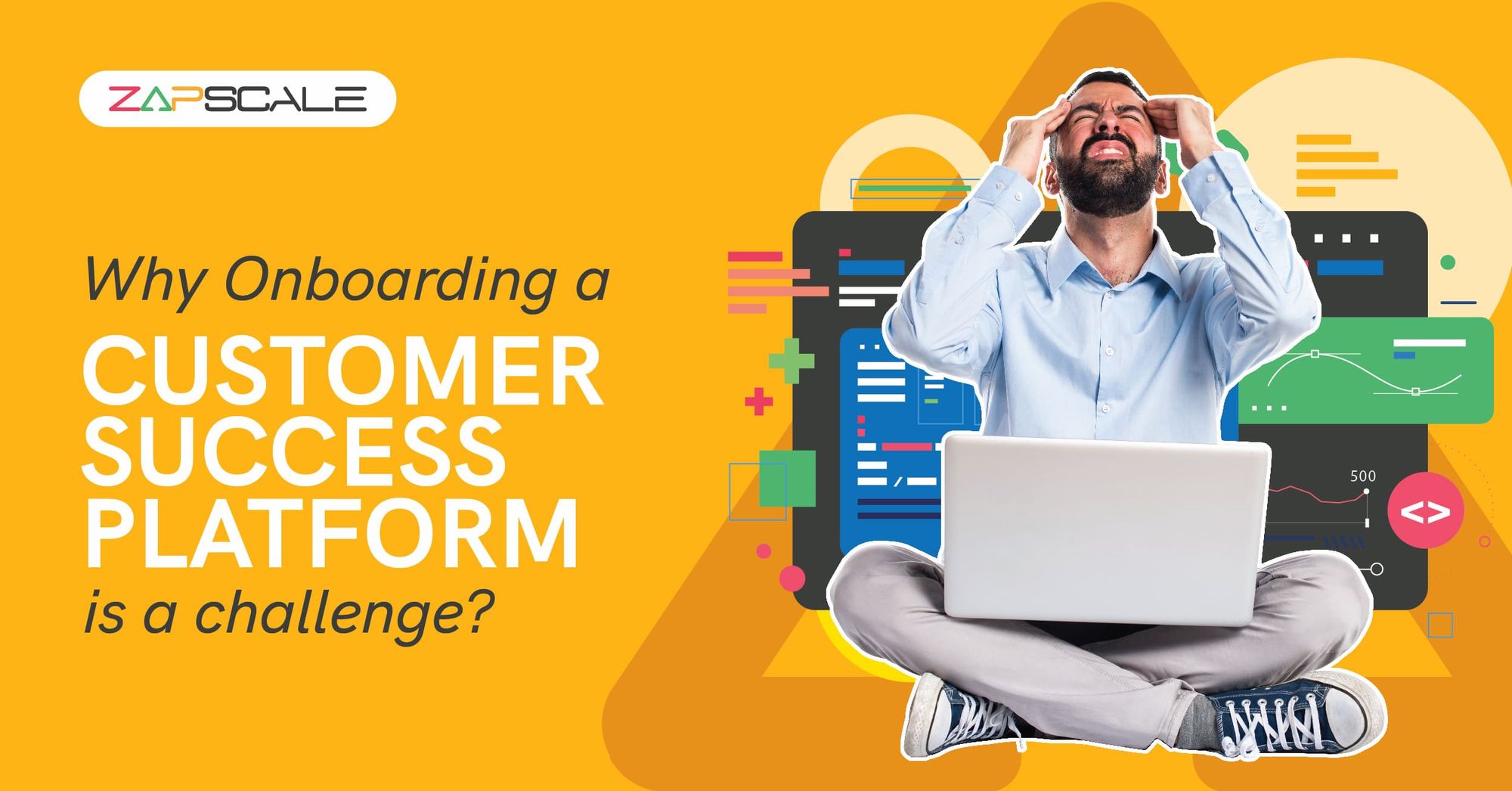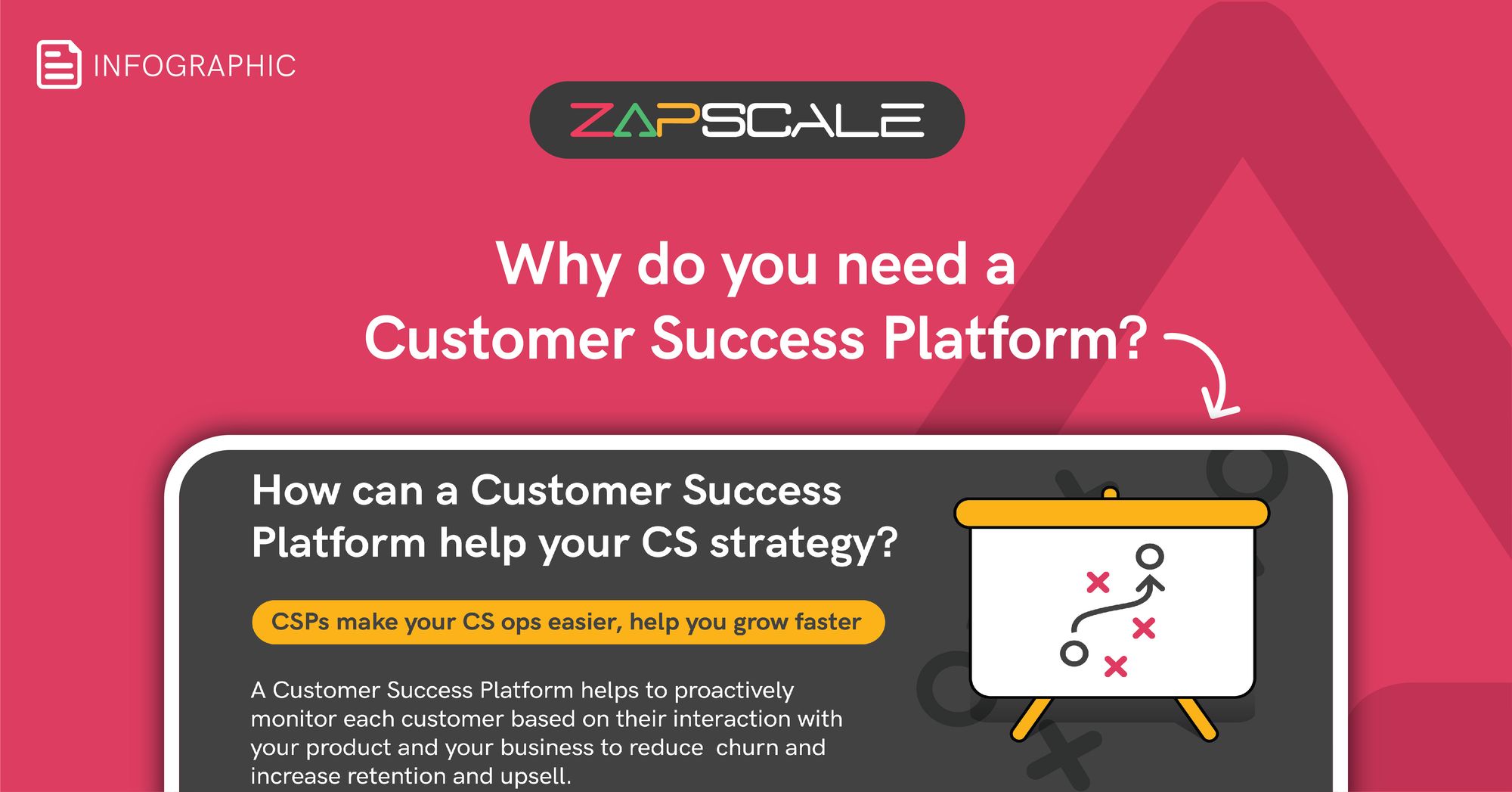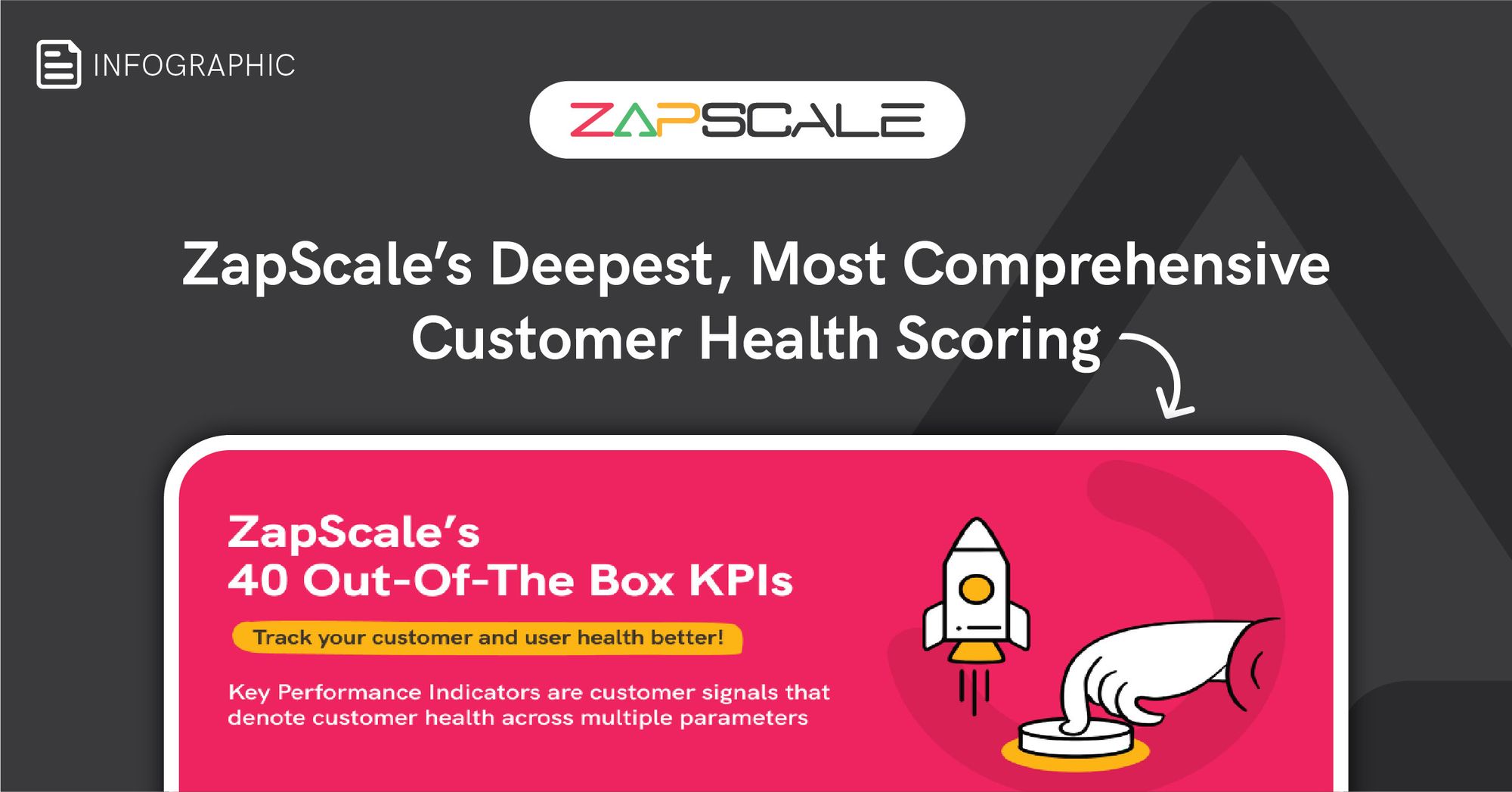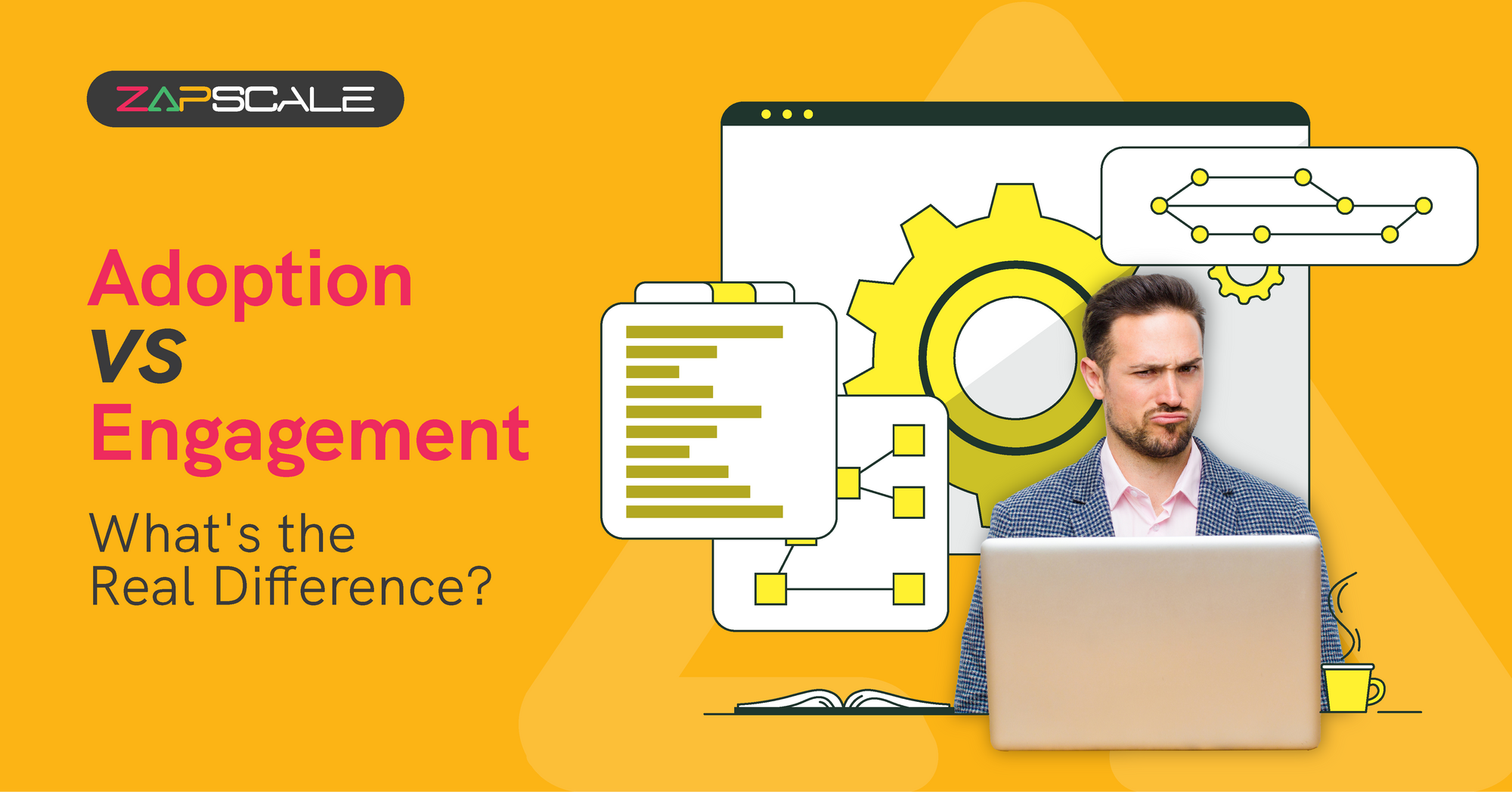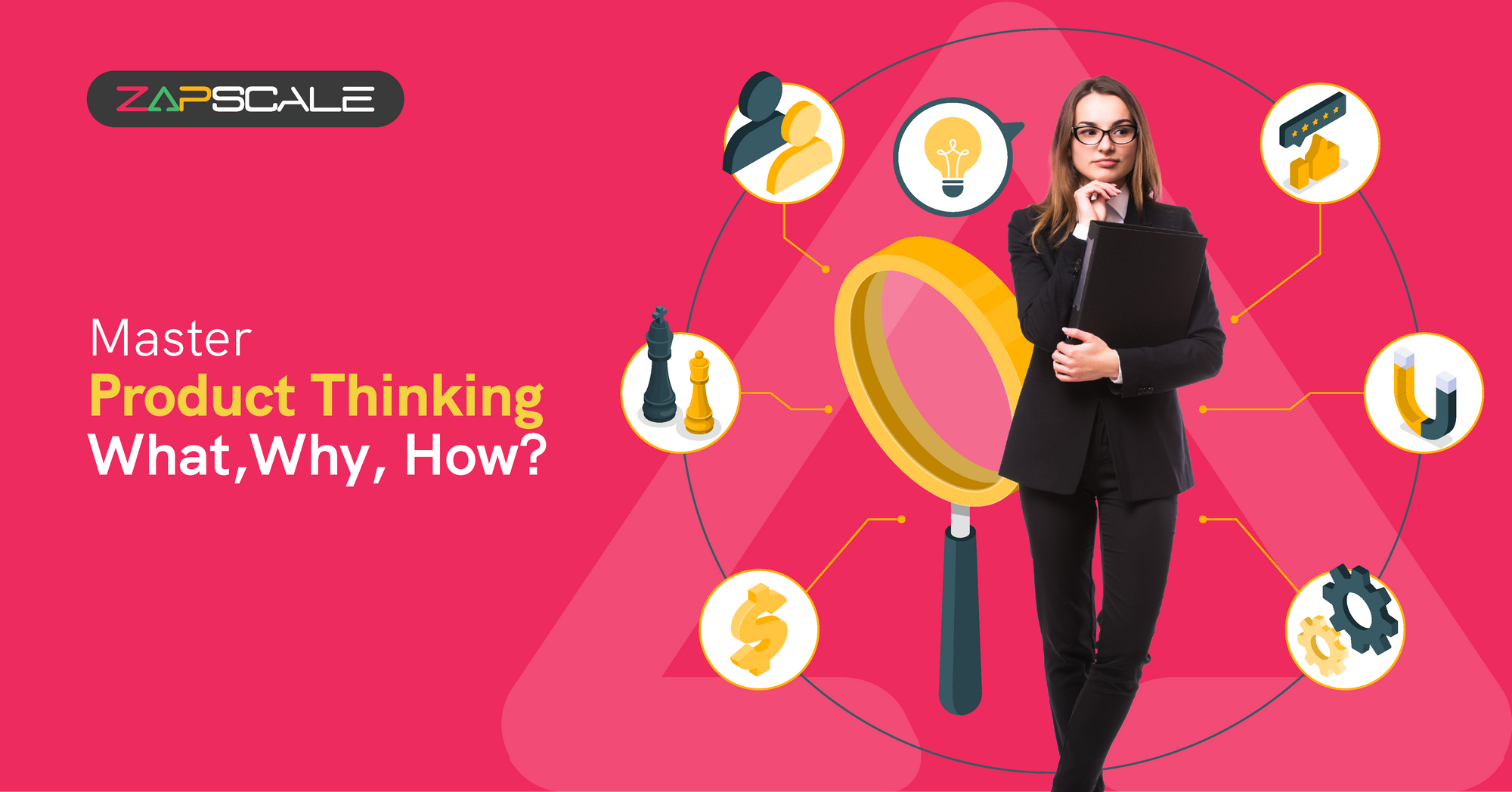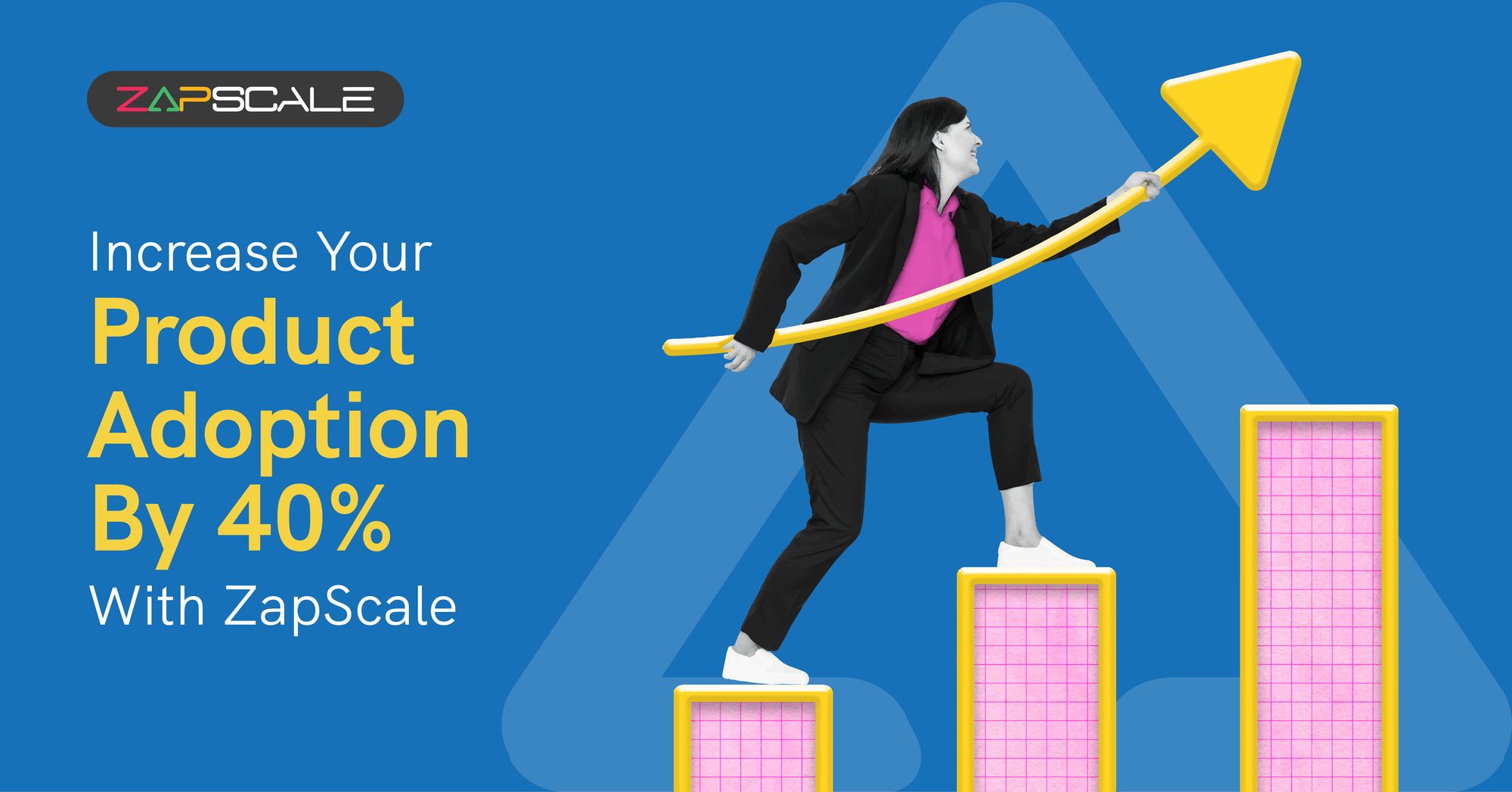CATEGORY > Customer Success Platform
From Acquisition to Advocacy: CRM vs. Customer Success Software
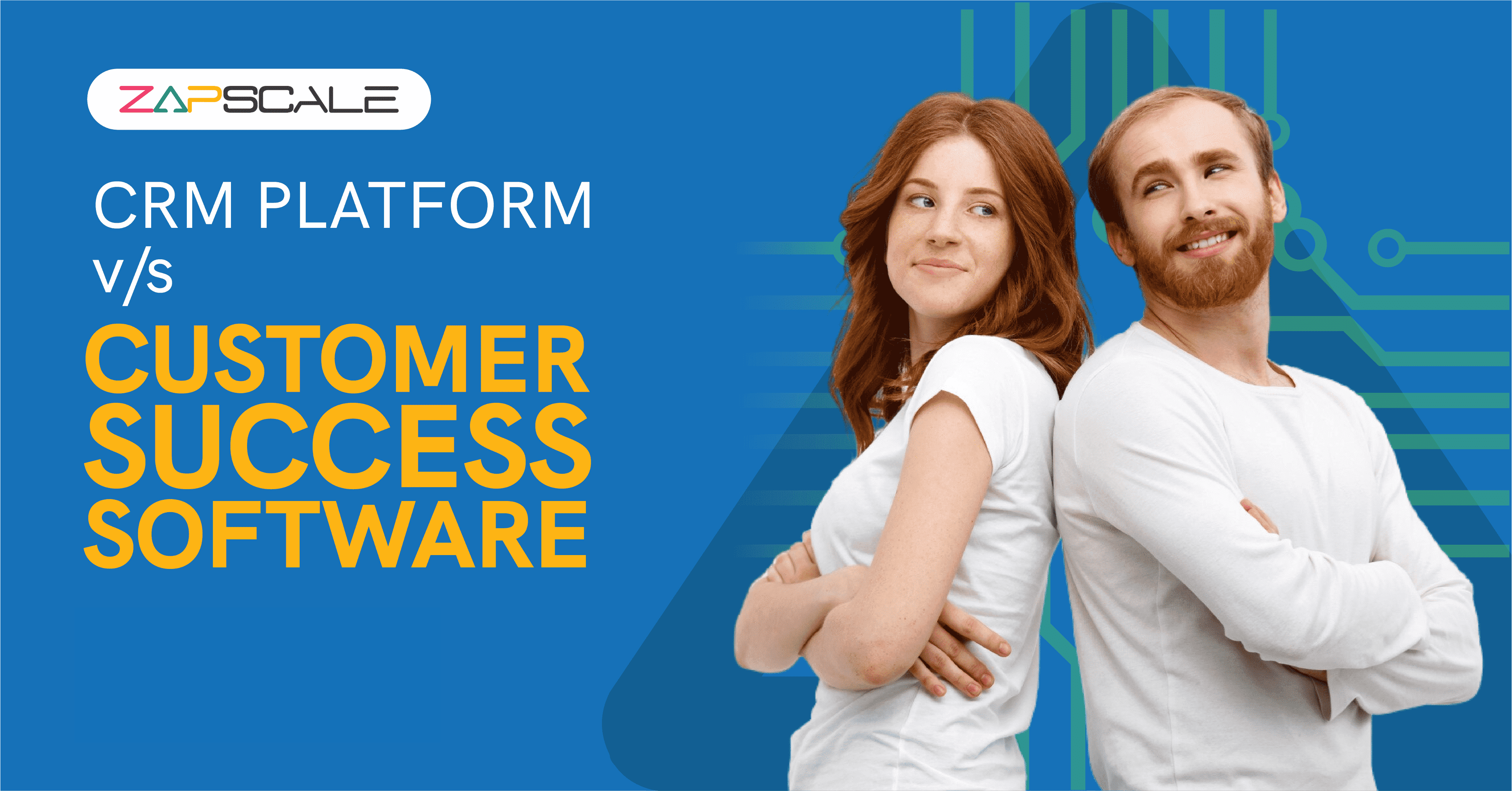
Introduction
Customer-centricity is the core of any business, especially if it follows a SaaS-based model. SaaS businesses always have a sword hanging over their heads as they’re more likely to lose their customers. Since customer attrition is a serious concern for SaaS enterprises, it becomes paramount to leverage tools and solutions that create a loyal and happier customer base.
Speaking of customer satisfaction, two specific tools can pop into your mind - CRM aka Customer Relationship Management platform, and Customer Success software.
So, what both these platforms are all about, and how they can prove lucrative in terms of customer acquisition and advocacy?
Let’s continue reading below to get the full scoop.
What is a Customer Relationship Management Platform
Customer Relationship Management (CRM) is a systematic technique for managing and fostering customer relationships. It entails employing technology, procedures, and data to better understand customer needs, preferences, and behaviors to create personalized experiences and increase customer happiness, loyalty, and retention.
To foster Customer Relationship Management, certain tools like Customer Relationship Management (CRM) platforms are deployed.
They enable firms to keep track of all their customer interactions, beginning from outreach to assistance. A strong Customer Relationship Management platform is essential for SaaS businesses that abide by customer-centricity.
Customer Relationship Management platforms expedite communication and provide each customer with a personalized and seamless experience - from initial contact to post-sales support. CRM technologies enable SaaS companies to enhance connections, anticipate requirements, and increase sales by centralizing customer data and activities.
These platforms act as the nerve core for handling client contacts throughout their lifetime.
Customer Relationship Management Platform - Stats & Facts
- CRM software revenue reached $48.7 billion in 2021 and is expected to rise at a CAGR of 14.2% from 2021 to 2028.
- For each dollar spent, CRM systems provide an average return on investment (ROI) of $8.71.
- The average spend per employee in the Customer Relationship Management Software market is expected to be $25.14 in 2024.
- The CRM software market is expanding rapidly, with revenues expected to exceed $80 billion by 2025.
Customer Success - The Inevitable Core
Customer Success is an organizational strategy that focuses on ensuring that customers achieve their goals through the effective usage of products or services.
It entails proactive customer engagement, support, and direction to ensure that consumers get the most value and happiness out of their investment.
SaaS businesses desire and require long-term connections, loyalty, and customer success by understanding and addressing their users’ demands and concerns.
When we say Customer Success, we imply something that goes beyond basic satisfaction by fostering a pleasant and mutually beneficial relationship between the customer and the SaaS company.
By prioritizing customer success, SaaS businesses can not only reduce customer churn but also foster long-term loyalty and advocacy.
Now, just as we use CRM to oversee customer relationships, similarly we also possess Customer Success Software to manage and optimize customer success activities.
With the power of Customer Success Software, SaaS brands can deliver personalized support, track customer engagement, and discover areas for development, thus, ultimately increasing customer happiness and retention.

Customer Success Software - Stats & Facts
- The Global Customer Success Platforms market is estimated to reach $3.1 billion by 2026, growing at a CAGR of 20.6% over the forecast period.
- Over 72% of organizations conveyed that achieving customer success was their top objective.
- 27% of firms with a Digital Customer Success program have well-established KPIs, while 60% claimed their KPIs are still "under construction".
- 86% of Customer Success teams use chat workspace technologies to communicate, fostering a collaborative environment.
- Nearly half of businesses (48%) now have official Digital Customer Success (DCS) programs and teams.
CRM Vs. Customer Success Software - The Key Differences
Both Customer Relationship Management platforms and Customer Success software solutions share the common goal - more happy and satisfied customers with less churn.
However, they differ in terms of their use cases and other attributes.
They fulfil unique functions within the context of the customer's journey.
While CRM platforms manage customer interactions and data, on the other hand, Customer Success Software drives outcomes and maximizes customer value.
We utilize CRMs to organize customer interactions and incorporate customer success software to boost proactive engagement and meaningful outcomes.
Let’s add some more words about the major distinctions between Customer Relationship Management platforms and Customer Success software.
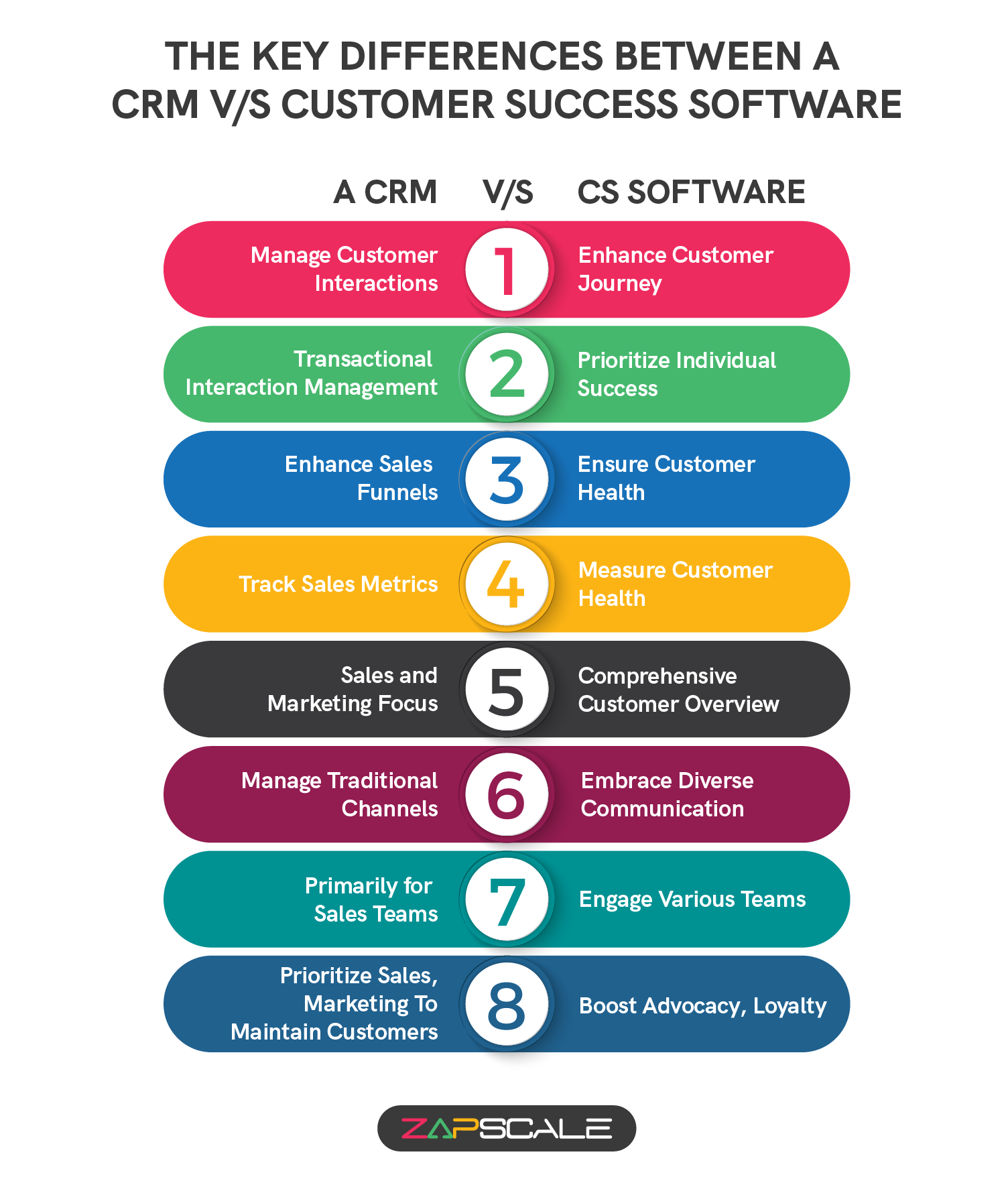
1. Main Purpose
As stated above, both Customer Relationship Management platforms and Customer Success software are utilized to achieve the same goal - Happy & Satisfied customers.
However, they share different purposes.
2. Customer-Centric Approach
After all, it’s the approach that counts! Customer Success software prioritizes individual customers' success, whereas Customer Relationship Management platforms are more transactional, concentrating on managing and tracking customer interactions.
3. Workflow Management
CRM platforms improve sales funnels and track opportunities. On the other hand, Customer Success software focuses on the health of customers after they have purchased a SaaS product.
It makes Customer Success Workflow for onboarding new customers easier, assuring successful product adoption, and increasing long-term engagement.
4. Metrics and Measurement
Both these software solutions track contrasting metrics. A Customer Relationship Management platform is concerned with sales metrics and tracks conversion rates and lead generation.
However, CS software measures customer health, satisfaction, and key user engagement metrics. These insights help identify at-risk customers and opportunities to improve the overall customer experience.

5. Customer View
Customer Success software delivers an in-depth overview of the customer, integrating data from several touchpoints and interactions to better understand their journey and needs.
In contrast, CRM platforms focus more narrowly on sales and marketing data, thus, delivering a segmented view of the client.
6. Targeted Channels Of Communication
Customer Relationship Management platforms often manage traditional communication channels such as email and telephone.
On the contrary, Customer Success software embraces a broader communication spectrum, frequently merging with chat tools and in-app messaging features to provide customers with real-time and personalized interactions.
7. Team Empowerment
When it comes to the intended users of CRM and CS solutions, there’s a huge deviation between the two.
CRM systems generally serve sales teams but Customer Success software enables a wider spectrum of users, including customer success managers, account managers, and product teams, allowing for a more collaborative approach to customer retention and growth.
8. Customer Advocacy And Loyalty
Customer Advocacy and Customer Loyalty are two vital metrics that determine the success and sustainability of a SaaS business.
Customer Success software strives to increase customer advocacy and loyalty by providing value-added services, tailored experiences, and proactive support, whereas Customer Relationship Management platforms prioritize sales and marketing efforts focused on obtaining and maintaining consumers.
Final Words
To sum up, in a few words, both Customer Relationship Management platforms and Customer Success software solutions attempt to improve customer happiness by performing different functions in the SaaS landscape.
Customer Success software focuses on individual customer success and engagement, whereas CRM platforms manage interactions and sales processes.
By leveraging the capabilities of both these platforms, SaaS establishments can create a customer-centric culture that values loyalty, advocacy, and long-term success.
ABOUT THE AUTHOR
Popular from Customer Success Platform
Quality Content,
Straight To Your Inbox!
Subscribe for the latest blogs, podcasts, webinars, and events!

Write a Blog
If you have experience in CS and
a flair for writing, we’d love to
feature you.
Write to us on
hello@zapscale.com
